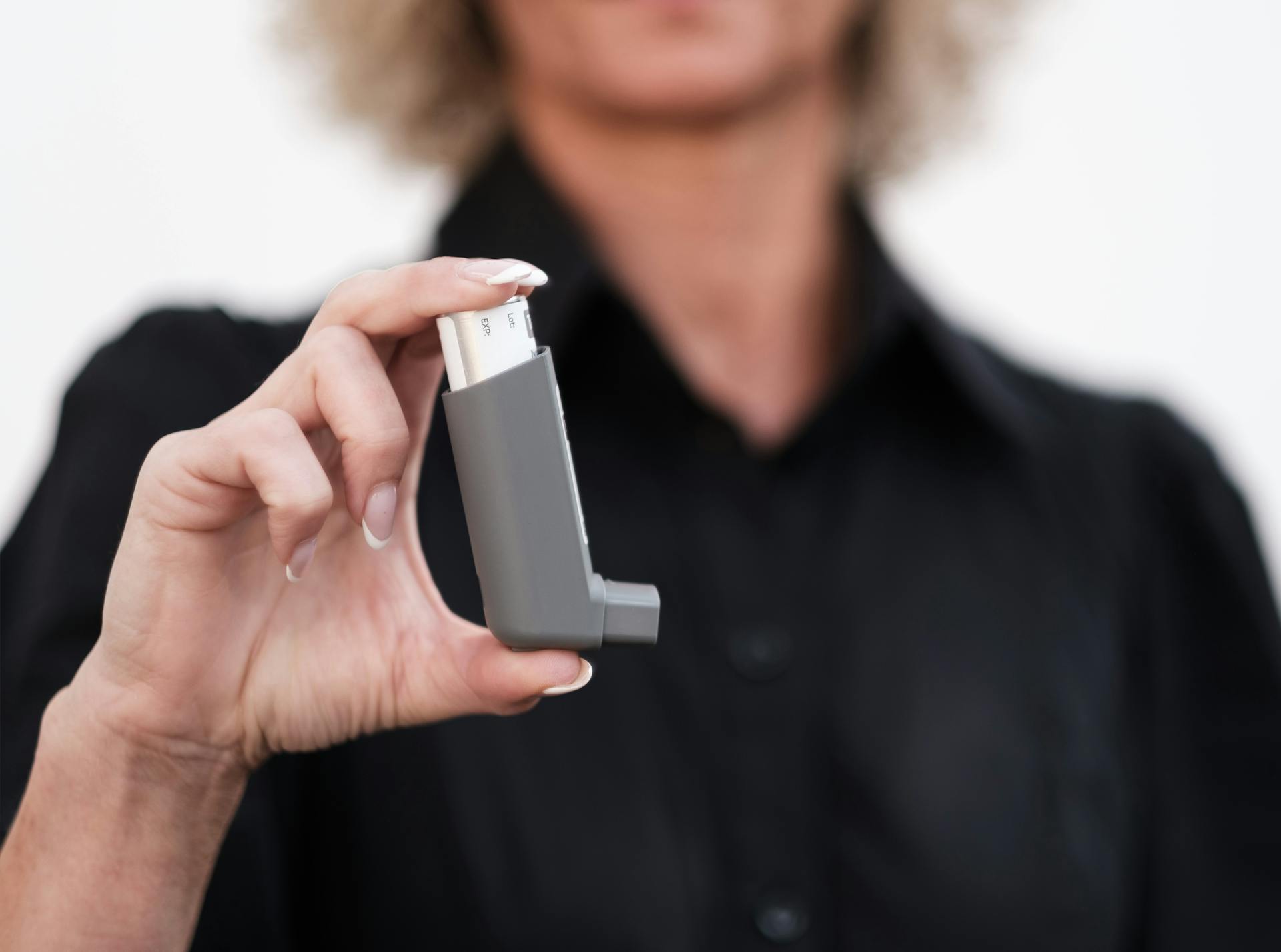
Asthma cough sounds can be unsettling, especially when they resemble a dog barking. This unique symptom can be a challenge to diagnose and manage.
Asthma cough sounds can be triggered by various factors, including allergies, pollution, and respiratory infections. These triggers can cause inflammation and irritation in the airways, leading to a persistent cough.
The cough sounds can range from a low, gruff bark to a high-pitched yelp. In some cases, the cough may be accompanied by a wheezing or whistling sound, which can be a sign of airway constriction.
Managing asthma cough sounds requires a combination of medication, lifestyle changes, and avoidance of triggers. By understanding the underlying causes and taking proactive steps, individuals can reduce the frequency and severity of their coughs.
Suggestion: Do Chihuahuas Help with Asthma
What is Croup?
Croup is a common and highly contagious respiratory illness that affects children, causing a distinctive barking cough and hoarse voice. It's most commonly seen in kids between the ages of 6 months and 5 years.
Croup typically starts with a runny nose, sneezing, and a mild cough, which can progress to a more severe cough and difficulty breathing. The barking cough is usually the most distinctive symptom, sounding like a seal or a barking dog.
The illness is usually caused by a virus, with the most common culprit being the parainfluenza virus. In some cases, croup can be triggered by allergies or environmental factors, but viral infections are the primary cause.
Symptoms of Croup
Croup symptoms can start with cold-like symptoms, such as a stuffy or runny nose and a fever.
A child may become hoarse and develop a distinctive barking cough as the upper airways become irritated and swollen.
Breathing gets harder as the airways continue to swell, and kids often make a high-pitched or squeaking noise while breathing in, known as stridor.
Kids might breathe very fast or have retractions, where the skin between the ribs pulls in during breathing.
In severe cases, a child may appear pale or have a bluish color around the mouth due to a lack of oxygen.
Diagnosing Croup
Croup is usually diagnosed based on a child's symptoms, which can include a barking cough, hoarse voice, and difficulty breathing.
A child with croup may have a high-pitched sound when inhaling, which is often described as a "barking" or "seal-like" cough.
This sound is caused by inflammation in the larynx, or voice box, and the trachea, or windpipe.
The symptoms of croup usually start at night, and can worsen over the next 24 to 48 hours.
Croup can be caused by a viral infection, and is most common in children between 6 months and 5 years old.
In some cases, croup can be caused by a bacterial infection, especially in children who are not up-to-date on their vaccinations.
A healthcare provider may use a stethoscope to listen to a child's lungs and check for any signs of infection.
They may also perform a physical exam to check for any signs of respiratory distress.
In some cases, a healthcare provider may order a chest X-ray to rule out other conditions that may be causing the symptoms.
Treating Croup
Croup is typically treated with a cool-mist humidifier to help loosen mucus and reduce inflammation.
If your child has a fever over 104°F (40°C), it's essential to seek medical attention.
Home Remedies
Steam inhalation can be an effective way to relieve croup symptoms, as it helps to loosen and clear mucus from the airways.
Using a humidifier or taking a hot shower can add moisture to the air, making it easier to breathe.
A warm compress or a bowl of hot water with a towel over your head can also provide relief.
Gargling with salt water can help to soothe the throat and reduce inflammation.
Honey is a natural cough suppressant and can be given to children over the age of one to help calm a cough.
Elevating your child's head while they sleep can help to reduce congestion and make breathing easier.
A cool-mist vaporizer can be used to add moisture to the air and help relieve congestion.
It's essential to remember that while home remedies can provide relief, they may not completely cure croup.
Broaden your view: My Dogs Ear Sounds like It Has Water in It
Medical Treatment
Treating croup often involves using a humidifier to add moisture to the air, which can help soothe a child's inflamed vocal cords.
Giving a child a warm bath before bed can also help ease their symptoms, as the steam from the water can help reduce congestion.
Using a cool-mist humidifier is especially helpful, as the cool air can help reduce inflammation and make breathing easier.
Steroids can also be prescribed to reduce inflammation and swelling in the throat, which can help alleviate symptoms.
Antibiotics are usually not necessary to treat croup, as it is a viral infection.
In some cases, a doctor may prescribe epinephrine to help open up the airways and make breathing easier.
A child's symptoms can usually be managed at home with the help of a humidifier and some rest, but if symptoms worsen or last longer than expected, a doctor should be consulted.
In rare cases, croup can lead to a secondary infection, such as pneumonia or bronchitis, which requires medical attention.
Frequently Asked Questions
What does an asthmatic cough sound like?
An asthmatic cough is typically a dry, high-pitched cough accompanied by a wheezing sound, often caused by constricted airways. This distinctive cough is a key symptom of asthma, distinguishing it from other types of coughs.
Does albuterol help with barking cough?
Albuterol does not help with a barking cough, as it's not caused by wheezing in the lungs. If you're concerned about a barking cough, learn more about the possible causes and treatments.
Sources
- https://www.askdrwong.ca/recurrent-croupy-cough-can-be-a-form-of-asthma/
- https://www.mayoclinic.org/diseases-conditions/croup/symptoms-causes/syc-20350348
- https://www.asthmafoundation.org.nz/your-health/other-respiratory-conditions/croup
- https://kidshealth.org/en/parents/croup.html
- https://www.healthline.com/health/croup-in-adults
Featured Images: pexels.com


